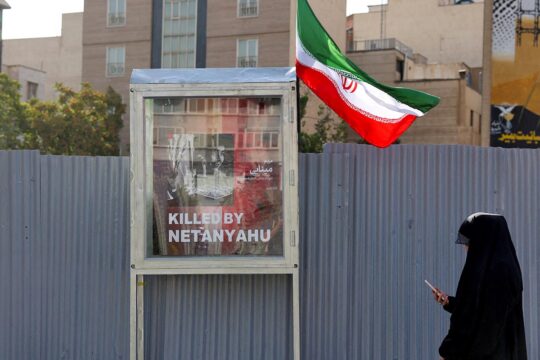A UK law granting immunity to combatants involved in decades of sectarian violence in Northern Ireland breaches the European Convention on Human Rights (ECHR), a Belfast court ruled Wednesday.
Victims of the violence challenged the law, which received royal assent in September despite widespread opposition from political parties, victims' organisations, the Irish government and the Council of Europe.
Following the ruling, it is now up to the UK parliament to decide whether to amend the law or ignore it, which could prompt further legal action.
The law calls for the creation of a truth and recovery commission offering amnesty to British security personnel and paramilitaries if they cooperate with its enquiries.
More than 3,500 people were killed during three decades of sectarian conflict known as the Troubles, which began in the 1960s over British rule in Northern Ireland.
Around 1,200 deaths remain under investigation by police in the province, according to the UK government.
In its ruling, the Belfast High Court said there is no evidence that the immunity provision in the new law will in any way contribute to reconciliation in the UK territory.
Judge Adrian Colton found the Northern Ireland Troubles (Legacy and Reconciliation) Act, as it is formally known, breaches at least two ECHR articles.
However, he also said the new body set up to probe Troubles killings -- the Independent Commission for Reconciliation and Information Recovery (ICRIR) -- could proceed with human rights-compliant investigations.
"The court is satisfied that the provisions of the Act leave sufficient scope for ICRIR to conduct an effective investigation as required under Articles 2 and 3 of ECHR," he added.
But Colton noted that "should it fall short" of these obligations, he expected further court scrutiny.
Grainne Teggert, Amnesty International UK's deputy director for Northern Ireland, welcomed the ruling, calling it "an important and significant development for many victims".
- 'Complex' -
Reacting in parliament, Northern Ireland Secretary Chris Heaton-Harris said the government "remains committed" to implementing the law but needed more time to consider the court decision.
"It is a very complex case, I am told the judgment runs to over 200 pages and I am yet to see it," he told MPs.
"It will take some time to consider," Heaton-Harris added, vowing to do so "very carefully".
His ministry has previously insisted the new commission would have "necessary powers to conduct criminal investigations... ensuring compliance with the government's international obligations under the ECHR".
But Hilary Benn, the main Labour opposition's Northern Ireland spokesman, questioned how it could now become operational "when one of its central powers has just been struck down".
Martina Dillon, whose husband Seamus was shot dead during the Troubles, vowed after the ruling that she will "continue to fight on, until I get what I want, that's truth and justice for my husband's murder."
The Council of Europe, the continent's leading human rights watchdog, last June said it had "serious concern" about the law, then still in draft stage.
It had urged the UK to reconsider the immunity scheme, highlighting "the importance of gaining the confidence of victims, families and potential witnesses".
The bill has drawn ire from the families of victims, both sides of Northern Ireland's political divide and leaders in the Republic of Ireland.
Ireland's minister for further education Simon Harris said on Wednesday the court ruling appeared "positive from the perspective of the Irish government wanting to work to ensure that all families get justice".


